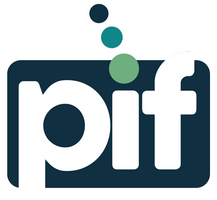Position: Partner at Keystone Law
Siobhan is a commercial lawyer specialising in working with businesses that provide, receive or play a role in delivering niche payment solutions. Her role includes advising clients on strategy, new product structure, business expansion, formulating procedures, regulatory conundrums and contracts (B2B and B2C). Her focus is on the e-money and payment services sector, working with businesses operating in and outside of the e-money / payment service regulatory framework.
'I hope that the knowledge I have gained and experience learned from being involved in the payments sector for the past 15+ years can be of value to the Members and the work that PIF does in championing the innovations we see in payments, promoting good standards of regulatory compliance and working with interested parties to inform them about the industry. ' - Siobhan Moore
Get to know Siobhan Moore
Tell me about Keystone Law and what is your role?
I am a commercial lawyer, a Partner at the law firm Keystone Law. I work with businesses who offer, or facilitate the delivery of a payment solution to the market. The solution can be a gift card, electronic or QR code, an App or an account – the range is broad and growing. As are the businesses that I work with; they are tech businesses, retailers, financial institutions, and innovating third party business looking to launch products themselves or enter into strategic partnerships.
What do you think is the driving force behind the exponential growth in Fintech?
No single thing is driving the growth, but there is a realisation that holding funds, making payments, moving value from A to B can be done quicker, more efficiently, more economically for both business and consumers and it can also be carried out in ways to suit users better.
Is it possible that regulation has fuelled the growth of Fintech?
Regulation can be an enabler, but it typically comes into being in response to market growth to help drive the market in a particular direction. Regulation (if set in a balanced manner) can help give legitimacy to new business, changes in industry direction and garner confidence in both the business and the market it serves. Innovations in the industry generate excitement, hysteria and suspicion, often in almost equal measure. The rise in the crypto and BNPL markets are examples of this and it only takes one or two bad players, negative press and / or vocal critics (whether they are informed or not) to cast a shadow over the wider market and damage to the long term success. It is key that users have the reassurance that the businesses they use operate in accordance with core, common standards and this is where regulation has the role to play, as long as they are proportionate and balanced.
Regulation aside, what do you think are the biggest challenges facing Fintechs today?
Every business is feeling the cumulative effect of the various global and domestic issues we are experiencing, including COVID, the Russia – Ukraine war, cost of living crisis, the general downturn in our domestic and global economy, supply chain issues, soaring business operating costs, and the aftermath of Brexit.
Then there are the challenges that face Fintechs - attracting the right talent and retaining them, acquiring and keeping an active customer base and getting investment to help them grow. It’s a tough gig out there.
How is the Payments Innovation Forum helping Fintech organisations face these challenges?
PIF’s focus this year is to work with Members to help them build business resilience. It is kickstarting two initiatives focused on the Cost of Living and Business Growth to help members navigate these uncertain times and continue to grow their business through sharing valuable insights and experiences.
How should the fintech sector respond to the cost-of-living crisis?
Businesses in the Fintech sector are well placed to help at this time, since many of them are focused on providing more efficient, tailored payment solutions to suit their user’s needs, and they may also be more economical than the generic payment solutions on offer. Now more than ever businesses should be informing their users and prospective users about how their services can help them at this time.
If you were prime minister for a day, what would you pledge in support of the industry?
I’d launch a levelling up campaign for the payments sector to boost confidence in the market. We’d carry out an in-depth look at the payments market and analyse the disparities in this industry between the different types of payment service providers and why; reviewing media, public and regulatory and investor perceptions. The objectives are to boost confidence in this market, dispel myths, preconceptions and educate.


